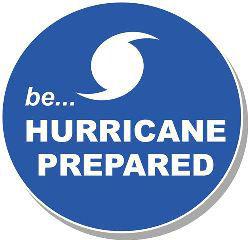
Did you know that hurricane season officially starts in June? Although we usually associate late summer and autumn with peak periods of hurricane activity, now is the time to increase public awareness and understanding of how these potentially dangerous storms can impact us. The National Weather Service, as part of its "Weather-Ready Nation" initiative, wants everyone to have a plan of action prepared well in advance of a storm threat. This is good advice, not just for coping with severe weather events, but also a multitude of natural and made-made situations that could arise with little-to-no advance warning. We can all relate to the notion of "emergency preparedness" during these difficult and challenging times.
As Long Islanders, we are not strangers to the threat of tropical storms and hurricanes. Although we haven't experienced tropical cyclones that can be casually described as "strong" or "severe" in several years, we have seen first-hand the damage and destruction that so-called "weak" or "moderate" storms can cause. We certainly remember the effects of "Superstorm Sandy” (2013), so-named because winds were just shy of hurricane-strength when it made landfall. Other named tropical storms and hurricanes that Long Islanders have indelible memories of include Gloria (1985), Belle (1976), Agnes (1972), Donna (1960) and Carol (1954). Prior to named storms, hurricanes were given descriptive names or nicknames -- The Great Atlantic Hurricane of 1944 is a notable example. However, the worst tropical cyclone to affect our region in modern times is The New England Hurricane of 1938 (a.k.a. "The Long Island Express") -- an unforgettable, historic storm that made landfall as a devastating Category 3 hurricane.
Let's also not forget, along with warmer weather comes an increased threat of severe thunderstorms, lightning strikes, flooding rains and tornadoes. These weather events are often not given the same level of consideration or preparation as tropical cyclones, despite the fact that they occur more frequently and are less predictable in nature.
For more information about hurricanes and weather preparedness, check out these online resources: